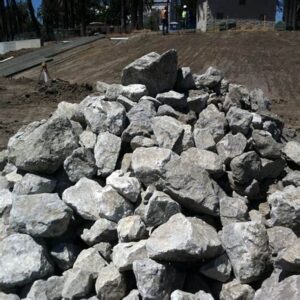Need help? Call us:
+91 7018428257
Stone 200Ft
₹6,999.00 Original price was: ₹6,999.00.₹5,999.00Current price is: ₹5,999.00.
🔥 Buy More Save More!
Buy 3 items get 5% OFF
on each productBuy 6 items get 10% OFF
on each productBuy 10 items get 15% OFF
on each productHave any Questions?
Feel free to Get in touch
Stone has been a fundamental material in building construction for centuries due to its durability, versatility, and aesthetic appeal. It is used in various forms, such as blocks, slabs, and tiles, and can be sourced from different types of rocks like granite, limestone, and marble.
Advantages of Stone in Building Construction
Durability and Longevity:
Stone structures can withstand the test of time and harsh weather conditions, making them extremely durable and long-lasting.
Low Maintenance:
Stone requires minimal maintenance compared to other building materials. It is resistant to wear and tear, and its appearance can be easily preserved.
Aesthetic Appeal:
Stone offers a natural and timeless beauty. It comes in various colors, textures, and finishes, allowing for creative and visually appealing architectural designs.
Thermal Insulation:
Stone has excellent thermal mass, which helps in regulating indoor temperatures by storing heat during the day and releasing it at night, contributing to energy efficiency.
Fire Resistance:
Stone is inherently fire-resistant, providing added safety to buildings and reducing the risk of fire damage.
Environmental Sustainability:
Stone is a natural material with a lower environmental impact compared to synthetic materials. It can be locally sourced and has a long lifecycle, contributing to sustainable construction practices.
Acoustic Properties:
Stone provides good sound insulation, reducing noise transmission and enhancing the acoustic comfort of a building.
Strength and Stability:
Stone structures are strong and stable, capable of supporting substantial loads and resisting external forces such as wind and earthquakes.
These advantages make stone an excellent choice for a variety of construction projects, from residential homes to grand public buildings.
You may add any content here from XStore Control Panel->Sales booster->Request a quote->Ask a question notification
At sem a enim eu vulputate nullam convallis Iaculis vitae odio faucibus adipiscing urna.




Reviews
There are no reviews yet.